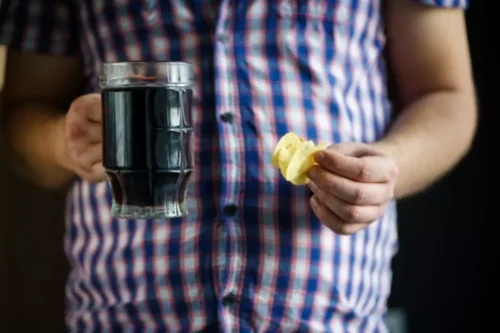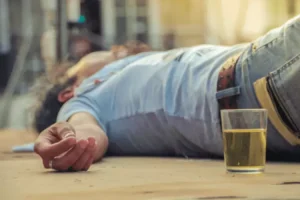
If you’re regularly drinking alcohol to help you fall asleep, particularly if you have insomnia, it’ll probably make your sleep problem worse. Many people turn to alcohol to cope with difficult feelings, but alcohol may end up having the opposite effect if it interferes with sleep. For example, people with moderate or severe anxiety who use alcohol in hopes of sleeping better are actually more likely to have sleep problems. Similarly, studies on bereaved individuals have found that using alcohol to cope with grief increases the risk of developing major depression, which is itself a risk factor for sleep disturbances. A newer study found that one dose of alcohol had no effect on the circadian rhythm in rodents.
Sleep Medicine Physician

However, as the night progresses, alcohol can cause a rebound effect, leading to increased glutamate levels and disrupted sleep. Consuming alcohol regularly before bed can also make it more difficult to sleep, according to a 2016 study in the journal Drug and Alcohol Dependence. does alcohol help you sleep Researchers found that chronic or habitual alcohol use before bedtime led to bouts of insomnia. Sleep problems, such as difficulty getting to sleep, frequent waking during the night and difficulty getting up in the morning, were also more common in people with alcoholism.
Alcohol and Sleep

However, as the night progresses, alcohol can interfere with the natural buildup of adenosine, leading to disrupted sleep. As your body metabolizes the alcohol and the sedative effects wear off, it can interfere with your circadian rhythm, and cause you to wake up frequently or before you’re properly rested. The gut and its microbiome are often referred to as the body’s second brain, and operate under powerful circadian rhythm activity. The circadian disruption that can result from alcohol consumption contributes to leaky gut syndrome, according to research. For many people, enjoying the occasional drink with friends or a glass of wine with dinner is something to look forward to.
The 14 risk factors to watch for as dementia cases set to skyrocket
So while, yes, that glass of wine can enhance your sleep on occasion, remember that it’s certainly not a long-term solution to ongoing sleep troubles and can, in fact, exacerbate the issue. Alcohol can initially enhance the effects of GABA, a neurotransmitter that promotes relaxation and sleep. However, prolonged alcohol exposure can lead to a https://ecosoberhouse.com/ depletion of GABA levels, contributing to sleep disturbances. If you have alcohol in your system when you hit the hay, you may not sleep very deeply, or for very long, on and off throughout the night. That’s because as alcohol starts to metabolize, the sedative effect wears off. Alcohol has been linked to reduced rapid eye movement (REM) sleep.
People suffering from depression may already have disrupted circadian rhythms, and the presence of even moderate amounts of alcohol may push those rhythms further out of sync. According to the review, dehydration is caused by the loss of water and electrolytes due to the activation of the hormone system that regulates blood pressure, fluid, and electrolyte balance. Meanwhile, the hallmark effects of an alcohol hangover are the result of oxidative stress and the body’s inflammatory response to alcohol consumption. These results are an important step forward in understanding the effects of alcohol in the body. They provide another compelling piece of evidence that alcohol’s role as an “aid” to sleep is misguided.
- For example, drinking several beers in one night might lead to longer-lasting bloating.
- While certain people are natural moderators who never drink more than the suggested amount, the truth is, most people who drink consistently will eventually need to re-evaluate the way they are drinking.
Using alcohol as a sleep aid may result in you believing the only way you can get to sleep is by drinking. In two separate studies, up to 28% of people said they use alcohol to help them fall asleep. If you experience consistent snoring and any one of the symptoms listed above, it may be time to talk to someone about your sleep issues. Schedule a free consultation with Dr. Rodgers and the team at Sleep Better Georgia today so we can get to the root of your sleep problems and help find the solution that’s right for you. The study also showed that alcohol affected men, women, and both active and sedentary individuals similarly.
Sleep Stages
Other than that, choosing drinks less likely to cause bloating is another option. Avoiding carbonation, artificial sugars, mixed drinks that include lots of ingredients, and drinking through a straw may all reduce the bloating that can occur after drinking. The most obvious might be carbonated drinks, such as beer or soda. Champagne, sparkling wine, and hard seltzer also contain carbonation that can lead to bloating.

